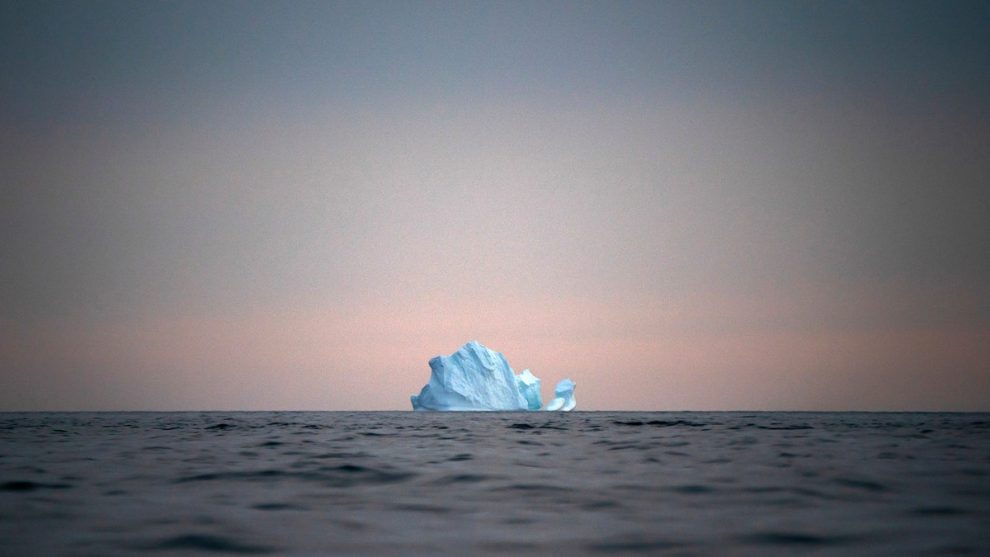The United Nations (U.N.) issued its latest climate change report which warned the “climate time bomb is ticking,” sparking renewed calls for nations including the U.S. to take more aggressive actions to curb carbon emissions.
The report, published Monday by the U.N.’s Intergovernmental Panel on Climate Change (IPCC), concluded that sustained global fossil fuel usage has caused the world to warm 1.1 degrees Celsius above pre-industrial levels, close to the 1.5-degree emergency threshold, and has pushed the world closer to a point of no return. U.N. Secretary-General Antonio Guterres said the report represented the most stark warning for humanity yet.
“The climate time bomb is ticking. But today’s IPCC report is a how-to guide to defuse the climate time bomb. It is a survival guide for humanity,” he said. “As it shows, the 1.5-degree limit is achievable. But it will take a quantum leap in climate action.”
Following the report, news outlets highlighted the findings and included comments from additional climate experts and environmentalists who said the report should be a final warning and that “there is no more room for compromises.” And White House press secretary Karine Jean-Pierre on Tuesday called the report a “sobering report on the state of our climate.”
DEMOCRATS BLAMING CLIMATE CHANGE FOR HURRICANE IAN AT ODDS WITH SCIENCE, EXPERTS SAY
However, the IPCC’s report is just the most recent in a long string of cataclysmic climate change warnings and calls to action from the U.N. dating back decades. The international body first called attention to emissions-caused climate change during its 1972 First Earth Summit in Sweden and zeroed in on the issue in the late 1980s when it began issuing its first major warnings about global warming.
“The ticking time bomb stuff — I mean, they really are running out of extreme rhetoric,” Steve Milloy, a senior legal fellow at the Energy & Environment Legal Institute, told Fox News Digital in an interview. “What’s the rhetoric going to be like next time or is it just going to be the same? I guess it could just be the same. We could have another stark, stark warning.”
“Since they never report that they’ve been wrong before, it doesn’t really matter. They just go on to the next one,” he continued. “This is an elitist-driven scare. It’s very important to the green energy industry, to the greens and to Democrats, but it’s not really important to anybody else. I think people are kind of getting bored with it.”
BIDEN CONSIDERING TEARING DOWN KEY GREEN ENERGY SOURCE OVER ECO CONCERNS
In 1989, Noel Brown, the former director of the U.N. Environment Program, told The Associated Press that entire nations would be wiped off the face of the Earth by 2000 if warming trends aren’t reversed. He added that if warming wasn’t reduced, humanity could expect “more ferocious storms, hurricanes, wind shear, dust erosion.”
One year later, the IPCC published its First Assessment Report which stated with certainty that human activity, namely the burning of fossil fuels for energy, “will enhance the greenhouse effect, resulting on average in an additional warming of the Earth’s surface.” The report also predicted that increases in emissions could cause “irreversible change in the climate which could be detectable” by 2000.
The IPCC continued publishing reports with stark warnings and bold predictions throughout the 1990s and 2000s.
“Emissions of greenhouse gases and aerosols due to human activities continue to alter the atmosphere in ways that are expected to affect the climate,” the agency’s Third Assessment Report published in 2001 stated. “There is new and stronger evidence that most of the warming observed over the last 50 years is attributable to human activities.”
REPUBLICANS DEMAND BIDEN’S ENERGY SECRETARY RETRACT ‘UNSERIOUS’ COMMENTS PRAISING CHINA
In 2007, the IPCC released its Fourth Assessment Report which gave the world eight more years to reverse warming and emissions trends to avoid the worst effects of climate change.
Seven years later, the Fifth Assessment Report stated the increased emissions were “increasing the likelihood of severe, pervasive and irreversible impacts for people and
ecosystems.”
“Time is running out. The more we delay, the more we will pay. Climate change is accelerating and human activities are the principal cause, as documented in a series of authoritative scientific reports from the Intergovernmental Panel on Climate Change,” former U.N. Secretary-General Ban Ki-moon wrote at the time.
“Climate change poses sweeping risks for economic stability and the security of nations.”
Then, in 2019, U.N. General Assembly President Maria Fernanda Espinosa Garcia said “11 years are all that remain to avert catastrophe,” giving the Earth until 2030. During the same event, Guterres said “we have no excuse not to act.”
And last year, the U.N. warned in a sustainable development report that, to avoid irreversible damage, global greenhouse gas emissions need to peak before 2025, decline 43% by 2030 and reach net-zero by 2050.
Despite the years of warnings, though, the world has continued to see increased carbon emissions and fossil fuel production. In 2022, energy-related carbon emissions reached an all-time high and global oil consumption is projected to reach an all-time high of 101.7 million barrels per day in 2023, according to the International Energy Agency.
























